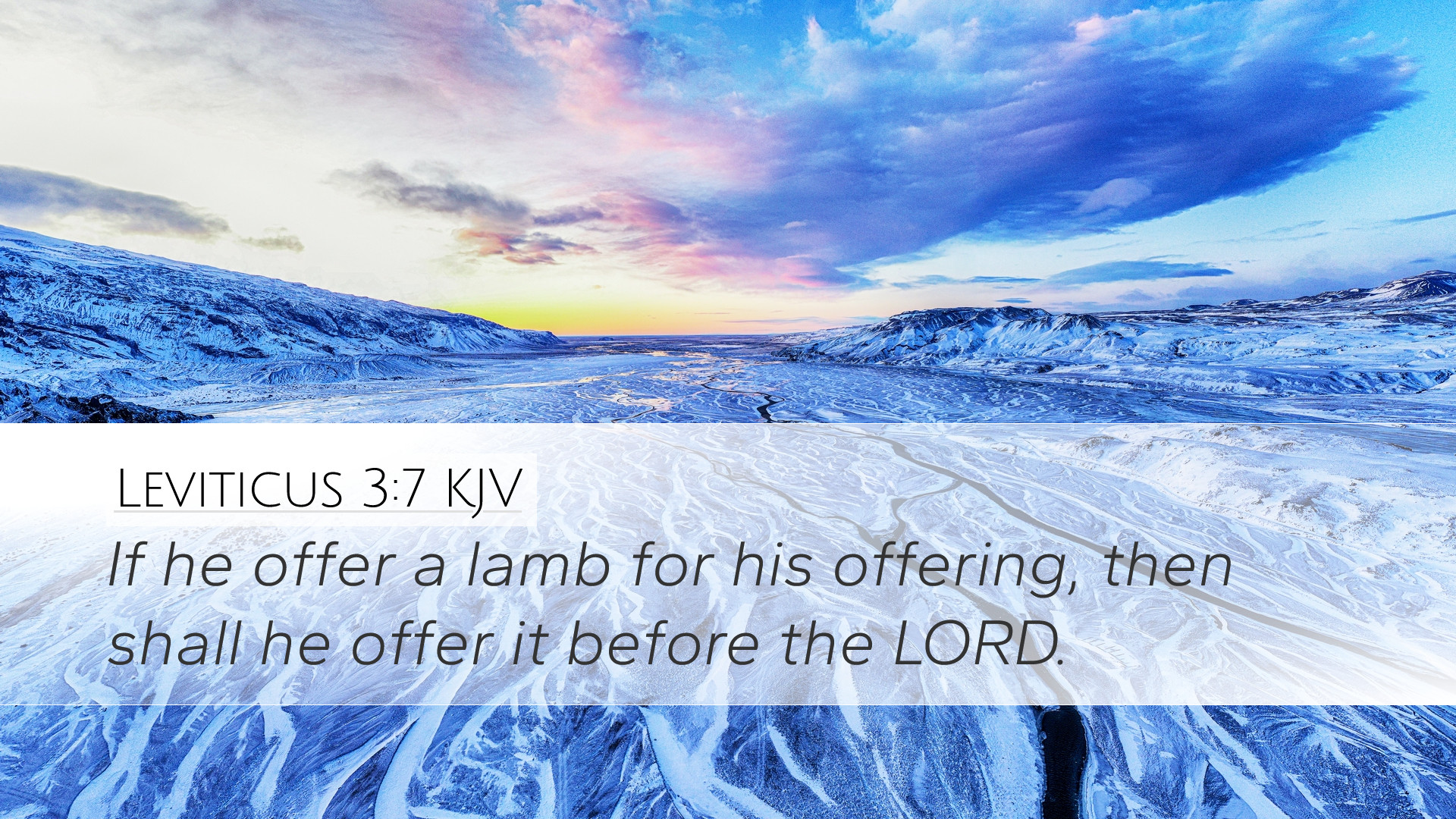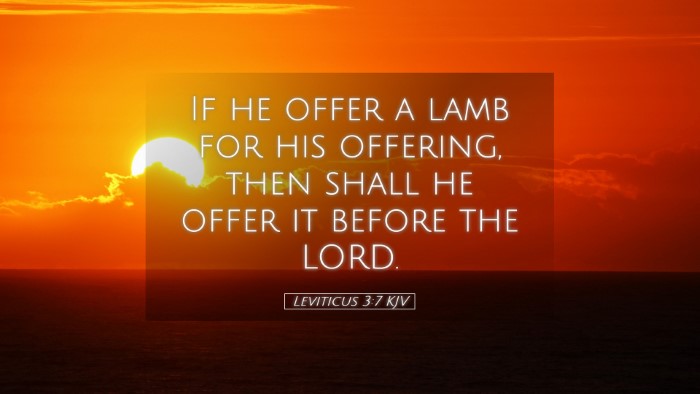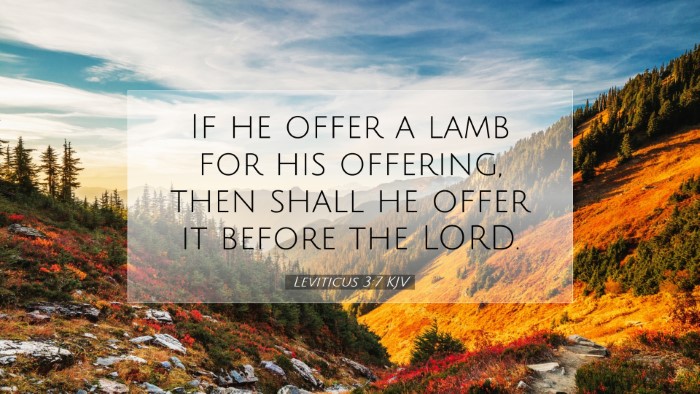Commentary on Leviticus 3:7
Bible Verse: Leviticus 3:7 - "If he offers a lamb as his offering, he shall offer it before the Lord."
Introduction
Leviticus 3:7 is a pivotal verse that speaks to the heart of the sacrificial system established in the Mosaic Law. It specifically addresses the sacrifice of peace offerings, which signify communion between God and His people. This commentary seeks to draw insights from public domain commentaries to unfold the theological significance and practical applications of this verse for pastors, students, theologians, and Bible scholars.
The Nature of the Peace Offering
Matthew Henry notes that the peace offering, or fellowship offering, was essential for recognizing God’s grace and favor bestowed upon the offeror. It is distinct for its communal aspect, as part of the offering was consumed by the priests, while the remainder was eaten by the offerer and their family. This communion aspect underscores the importance of sharing in God’s blessings and the joy of fellowship with Him.
Albert Barnes emphasizes that the peace offering was a voluntary act, demonstrating the worshipper's desire for peace with God. The act of offering a lamb—in this case, a more valuable sacrifice than a goat—symbolized the individual's commitment and devotion. This speaks volumes about the sacrificial mentality required when approaching God.
The Significance of the Lamb
Adam Clarke elaborates on the theological implications of the lamb. The lamb serves as a typology for Christ, the ultimate sacrificial Lamb whose death brings true peace between God and humanity. The selection of a lamb denotes purity and innocence, qualities that not only represent the sacrifice needed but also point forwards to the sacrifice of Jesus, who was without sin.
- Typological Significance: The imagery of the lamb points towards Christ's ultimate sacrifice, fulfilling the Law's requirements.
- Communal Aspect: Just as the peace offering allowed for sharing in a meal, it symbolizes the unity and fellowship believers have through Christ.
Symbolism of Offerings
The offerings in Leviticus, including the peace offering, illustrate essential theological truths about sin, atonement, and redemption. Matthew Henry reminds us that these ancient practices reveal God’s desire for reconciliation with His people. When a person offered a lamb, it was not just a transaction but a relational act that sought harmony between the worshipper and God.
Practical Applications for Today
The principles illustrated in Leviticus 3:7 remain relevant for contemporary believers. The offering of a lamb symbolizes our calling to present our best to God, and this can translate into how we live our lives and engage in worship today.
- Offering Our Best: Just as the faithful were to choose a perfect lamb, we are called to give our best to God in our time, talents, and resources.
- Fellowship with God: Engaging in community and fellowship, much like the shared meal from the peace offering, is foundational in our faith journeys.
- Understanding Atonement: Recognizing the cost of sin and the gracious provision of Jesus as our true peace offering should inform our worship and gratitude.
Conclusion
Leviticus 3:7 thus serves as a conduit for understanding divine grace and the believer's response in worship. The insights drawn from public domain commentaries unveil a rich tapestry of meaning and application, urging us to reflect on our relationship with God as we explore the depths of the peace offering. As we seek to live out these lessons, may we approach God with sincerity, offer our best, and celebrate the fellowship we have through Christ, the Lamb who takes away the sin of the world.


